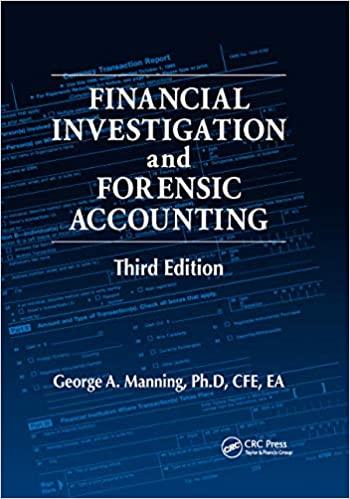Question
Estimating Share Value Using the DCF Model Following are forecasts of sales, net operating profit after tax (NOPAT), and net operating assets (NOA) as of
Estimating Share Value Using the DCF Model Following are forecasts of sales, net operating profit after tax (NOPAT), and net operating assets (NOA) as of February 26, 2011, for Best Buy, Inc.
| Assume Reported | Horizon Period | |||||
|---|---|---|---|---|---|---|
| (In millions) | 2011 | 2012 | 2013 | 2014 | 2015 | Terminal Period |
| Sales | $50,272 | $52,786 | $55,425 | $58,196 | $61,106 | $61,717 |
| NOPAT | 1,389 | 1,584 | 1,663 | 1,746 | 1,833 | 1,852 |
| NOA | 7,876 | 8,248 | 8,660 | 9,093 | 9,548 | 9,643 |
Answer the following requirements assuming a discount rate (WACC) of 11%, a terminal period growth rate of 1%, common shares outstanding of 392.6 million, net nonoperating obligations (NNO) of $1,274 million and noncontrolling interest (NCI) on the balance sheet of $690 million. (a) Estimate the value of a share of Best Buy's common stock using the discounted cash flow (DCF) model as of February 26, 2011.
Rounding instructions:
Round your answer to the nearest whole number except for the discount factors, shares outstanding, and the stock price per share.
Round the discount factors to five decimal places, common shares outstanding to one decimal place, and the stock price to two decimal places.
Use your rounded answers for subsequent calculations.
Do not use negative signs with any of your answers below.
| Assume Reported | Horizon Period | |||||
|---|---|---|---|---|---|---|
| (In millions) | 2011 | 2012 | 2013 | 2014 | 2015 | Terminal Period |
| Increase in NOA | Answer | Answer | Answer | Answer | Answer | |
| FCFF (NOPAT - Increase in NOA) | Answer | Answer | Answer | Answer | Answer | |
| Discount factor [1/(1+rw)t] | (round 5 decimal places) | Answer | Answer | Answer | Answer | |
| Present value of horizon FCFF | Answer | Answer | Answer | Answer | ||
| Cumulative present value of horizon FCFF | $Answer | |||||
| Present value of terminal FCFF | Answer | |||||
| Total firm value | Answer | |||||
| Less NNO | Answer | |||||
| Less NCI | Answer | |||||
| Firm equity value | $Answer | |||||
| Shares outstanding (millions) | Answer | (round one decimal place) | ||||
| Stock price per share | $ Answer | (round two decimal places) | ||||
Step by Step Solution
There are 3 Steps involved in it
Step: 1

Get Instant Access to Expert-Tailored Solutions
See step-by-step solutions with expert insights and AI powered tools for academic success
Step: 2

Step: 3

Ace Your Homework with AI
Get the answers you need in no time with our AI-driven, step-by-step assistance
Get Started


